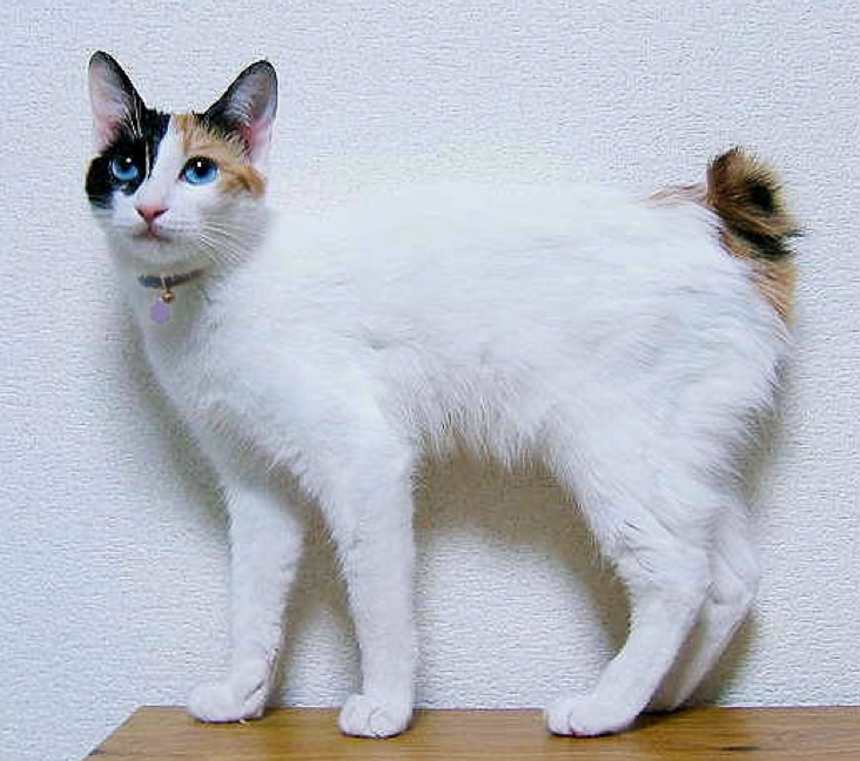Do Japanese Bobtails have health problems?

Yes, but like most ancient and naturally occurring breeds, Japanese Bobtails have few health problems. Still, they may be at risk of developing some conditions common to domestic cats, such as:
- Chronic kidney disease (CKD): CKD is a gradual loss of kidney function that can affect cats as they age. It often results from the kidneys’ inability to filter waste effectively, leading to increased thirst, frequent urination, weight loss, and lethargy. Management typically involves a special diet, medications, and monitoring to slow the progression of the disease and maintain quality of life.
- Diabetes: Diabetes in cats occurs when the body cannot properly regulate blood sugar levels, leading to symptoms like excessive thirst, frequent urination, weight loss, and increased appetite. Treatment generally includes insulin injections, dietary management, and routine blood glucose monitoring. Maintaining a stable weight and a balanced diet is crucial in managing diabetes.
- Dental disease: Dental issues, including gingivitis and periodontal disease, are common in cats. They can result from plaque buildup, leading to gum inflammation, bad breath, and pain. Regular dental care is crucial, including brushing your cat’s teeth, providing dental treats or toys, and scheduling professional dental cleanings. Promptly addressing dental problems helps prevent more serious conditions and discomfort.
- Obesity: Japanese Bobtails have a hearty appetite and are prone to obesity. It is best to give them scheduled feeds and minimal treats. This condition can exacerbate other health issues, such as diabetes and joint problems. Managing obesity involves controlling calorie intake, providing a balanced diet, and increasing physical activity. Monitoring weight and making adjustments to diet and exercise are essential for maintaining a healthy weight.
Routine vet visits and care are important for the prevention, early detection, treatment, and management of these conditions in your feline BFF.